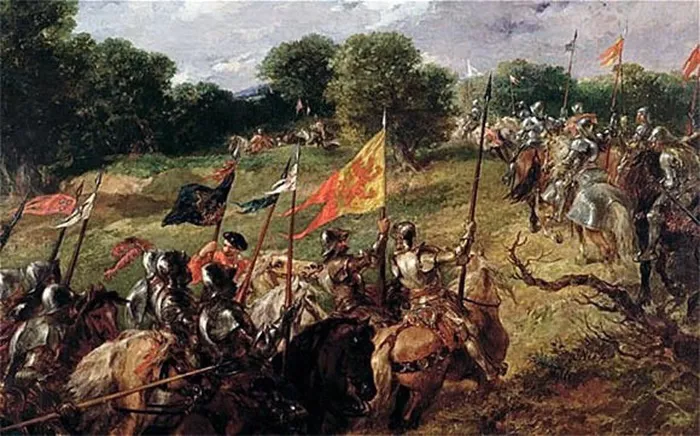Australia has a long and complex history, with many significant events occurring on May 4. This article will explore key historical moments related to this date, from colonial times to the modern era. These events have shaped Australia’s political, social, and cultural landscape, influencing the nation’s development.
What Happened on May 4 in Australian History?
1. The First Australian Convict Transport Ship Sailed from England (1787)
On May 4, 1787, the first fleet of convict ships prepared for departure from Portsmouth, England. The fleet, commanded by Captain Arthur Phillip, was tasked with establishing a penal colony in Australia. While the fleet officially set sail on May 13, May 4 marked a critical moment when final preparations were underway. The ships were loaded with supplies, convicts, and marines, beginning a journey that would lead to the foundation of modern Australia.
2. The Eight Hour Day Movement (1856)
On May 4, 1856, stonemasons in Melbourne achieved a breakthrough in labor rights. They had been advocating for an eight-hour workday, arguing that long working hours were detrimental to health and productivity. Their demands were finally met when stonemasons working on public buildings walked off the job. This movement set a precedent for workers’ rights in Australia and influenced labor reforms worldwide.
3. The Opening of Sydney’s Queen Victoria Market (1898)
On May 4, 1898, the Queen Victoria Market, also known as Paddy’s Market, was officially opened in Sydney. This market became a hub for trade and commerce, providing fresh produce, meat, and household goods to the growing population. It also played a crucial role in the city’s economy and remains an iconic landmark today.
4. The Foundation of the Australian Labour Party’s First National Conference (1905)
On May 4, 1905, the Australian Labour Party (ALP) held its first national conference in Melbourne. The conference was a turning point in the political organization of labor unions, shaping the party’s policies and strategies. It also led to the ALP’s increasing influence in Australian politics, eventually leading to its first federal government in 1908.
5. The 1912 Brisbane Tramway Strike
On May 4, 1912, the Brisbane Tramway Strike was at its peak. This strike began when workers protested against the Tramway Company’s refusal to allow union badges to be worn on uniforms. The strike escalated into violent clashes between police and demonstrators. This event was significant in the history of labor rights in Australia and highlighted the growing influence of trade unions in industrial relations.
6. The Construction of Canberra (1927)
On May 4, 1927, preparations were made for the official opening of the provisional Parliament House in Canberra. This marked the transition of Canberra as the official capital of Australia. Designed by architect Walter Burley Griffin, Canberra was planned as a city that would balance political power between Sydney and Melbourne.
7. The Death of Henry Lawson (1922)
On May 4, 1922, Australia lost one of its most influential poets and writers, Henry Lawson. Known for his short stories and poems depicting Australian bush life, Lawson’s work played a vital role in shaping the country’s literary tradition. His death marked the end of an era in Australian literature, but his influence remains strong.
8. The Sydney Harbour Bridge Construction Milestone (1930)
On May 4, 1930, a major construction milestone was reached in the building of the Sydney Harbour Bridge. The steelwork for the bridge was progressing steadily, and by this date, significant sections had been put in place. The bridge, completed in 1932, remains one of Australia’s most famous landmarks.
9. The Impact of World War II on Australia (1942)
On May 4, 1942, the Japanese attacked Darwin in one of the deadliest air raids on Australian soil. The attack was part of a broader campaign in the Pacific, with Australia playing a crucial role in the war effort. The bombing of Darwin changed the way Australians viewed their security and led to stronger defense policies.
10. The 1970 Anti-Vietnam War Protests
On May 4, 1970, mass protests were held in major Australian cities against the Vietnam War. Thousands of people marched, calling for an end to Australia’s involvement in the war. The protests reflected growing public dissatisfaction with government policies and played a role in shaping Australia’s foreign policy.
11. The Expansion of the Sydney Opera House (1990)
On May 4, 1990, plans were announced for the expansion and modernization of the Sydney Opera House. This included upgrades to its acoustics and seating arrangements, ensuring that the venue remained a world-class cultural institution. The Opera House continues to be a symbol of Australia’s artistic achievements.
12. The Apology to the Stolen Generations (2008)
On May 4, 2008, further discussions were held regarding the national apology to the Stolen Generations. Although the official apology was delivered by Prime Minister Kevin Rudd in February 2008, May 4 marked an important moment of reflection and policy implementation. The apology acknowledged the historical mistreatment of Indigenous Australians and aimed to promote reconciliation.
Conclusion
May 4 has been an important date in Australian history, marking events that shaped the nation’s identity, politics, and culture. From early colonial developments to significant political movements, this date provides insight into Australia’s evolution. Each of these events has left a lasting impact, influencing contemporary Australian society.
By studying these historical moments, Australians can gain a deeper understanding of their country’s past and appreciate the struggles and achievements that have contributed to its present.
Related Topics:

